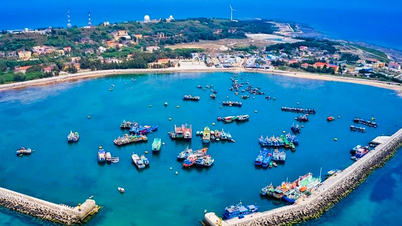
According to data from the World Economic Forum (WEF) released at the end of May, 10/119 global destinations with the highest tourism scores in order include the US, Spain, Japan, France, Australia, Germany, UK, China, Italy, and Switzerland.
The United States is the world leader in the 2024 Travel and Tourism Development Index with a total score of 5.24 (on a 7-point scale). According to WEF, the United States is a "mature" tourism market as the country already has infrastructure to welcome tourists such as air routes connecting everywhere in the world; domestic destinations have local tour guides, rental cars, hotel rooms, and maps to support tourists. In addition, the position of the United States in the international arena is also a strength that helps this country stand out. The United States is vast, possessing many unique natural landscapes, from national parks to large cities, many beautiful beaches and full tourism services.
The rankings are determined based on many criteria such as infrastructure, natural resources, sustainability, available labor resources, and competitive prices. In addition to the available criteria, WEF also highly appreciates the business activities of hotels, airports, tourist attractions, and airlines.
Among the top 10 countries, Europe has 6 countries and Spain ranked the highest (2nd) with a total score of 5.18. WEF commented that Europe is "a flexible destination with strong intra-regional tourism flows" and highly appreciated the continent's rail transport capacity. Strong economy, good position of the euro and pound, the ability of Europeans to travel more and spend more are the next reasons why this continent is highly appreciated in the 2024 tourism and travel development index.
Another factor to consider is the strength of European passports. The Henley Index, an annual ranking of passports, was used by the WEF to rank countries. In 2024, the six countries with the most powerful passports were France, Germany, Italy, Japan, Singapore, and Spain. Five of these countries appeared in the WEF's top 10. Singapore ranked 13th.
Asia has two representatives in the top 10: Japan and China. The WEF pointed out that global tourism growth in 2024 is expected to be reinforced by a tourism boom in Asia, the continent with some of the world's latest countries to lift pandemic restrictions.
Japan, which ranked third this year, is said to be “experiencing a tourism boom” since reopening its borders to visitors. Meanwhile, China, which ranked eighth, has made it easier for tourists to visit in recent months. In March, the country exempted visas for citizens of several European countries including Ireland, Switzerland and the Netherlands.
It is now "easier than ever" for Americans to visit China, as they no longer have to provide itineraries or prove hotel reservations to apply for a visa.
However, ranking high in the field of tourism and travel development, according to many experts, is not necessarily a good thing. Excessive tourism development leads to overload. In many countries, tourism overload is a problem that causes headaches for local authorities due to its impact on the environment and lack of sustainability.
The US and China have the advantage of large land areas to spread out the flow of visitors. But not all destinations in the top 10 are so lucky. In Spain, Barcelona residents are voting to ban cruise ships from docking in the city center. Residents of the Canary Islands have taken to the streets, even threatening to go on hunger strikes, to protest overtourism. Italy, which ranks ninth, is also struggling to balance its tourism market, having also faced problems with overtourism for years.
TH (according to VnExpress)Source








![[Photo] President Luong Cuong receives Speaker of the New Zealand Parliament Gerry Brownlee](https://vphoto.vietnam.vn/thumb/1200x675/vietnam/resource/IMAGE/2025/8/29/7accfe1f5d85485da58b0a61d35dc10f)
















![[Photo] Hanoi is ready to serve the occasion of the 80th National Day Celebration on September 2nd](https://vphoto.vietnam.vn/thumb/1200x675/vietnam/resource/IMAGE/2025/8/29/c838ac82931a4ab9ba58119b5e2c5ffe)
































































Comment (0)